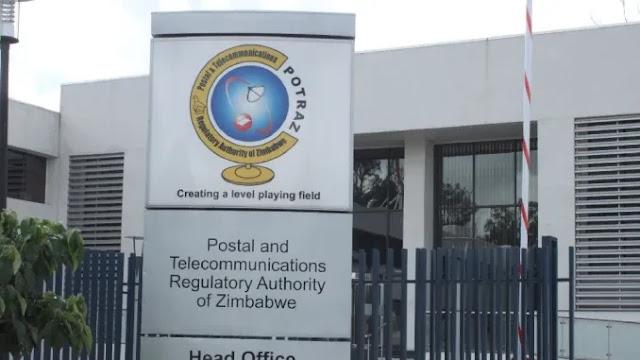News / National
Potraz raises red flag over impact of power cuts on telcos
2 hrs ago | Views
The Postal and Telecommunications Regulatory Authority of Zimbabwe (Potraz) has expressed serious concerns regarding the ongoing power outages that threaten to disrupt the country's telecommunications industry. These challenges, exacerbated by escalating load shedding, could further undermine service delivery at a time when the sector is already grappling with significant energy issues.
Currently, Zimbabwe is experiencing aggressive load shedding, with some regions enduring power cuts lasting up to 16 hours a day. This situation has been primarily attributed to an El Niño-induced drought, which has drastically reduced water levels at the Kariba Dam, the nation's principal source of hydroelectric power.
In its recently released Postal and Telecommunications Sector Abridged Performance Report for the second quarter of 2024, Potraz noted that while telecom companies are making significant investments in high-speed broadband infrastructure, the persistent grid power shortages are severely hindering their efforts. "The sector may suffer negatively from the ongoing power cuts experienced in the country," Potraz warned, emphasizing that "incessant power cuts disrupt service quality for telecom operators, who rely heavily on grid-supplied electricity."
This warning comes at a time when the government has introduced stringent penalties for telecom operators that fail to meet service quality standards. Under the new regulatory framework, operators could face fines of up to US$5,000 for non-compliance with key performance indicators, which include call quality, data service performance, SMS delivery, and network uptime. Furthermore, each cell tower that does not meet these benchmarks may incur a $200 fine, with penalties increasing for network outages and failure to submit performance data.
The penalties are part of a broader government initiative aimed at improving the telecommunications sector, which is crucial to Zimbabwe's economy but currently faces numerous challenges. The sector is highly competitive, with major operators providing a range of services from voice and data to cloud solutions and cybersecurity. However, macroeconomic difficulties—such as foreign exchange shortages, legacy debt, and local currency depreciation—have made it difficult for many operators to maintain viability, let alone ensure high-quality service. Reports indicate that one major mobile operator has liabilities exceeding assets by ZWL$32 billion, while another has been deemed technically insolvent.
To enhance network reliability, the government has set specific performance benchmarks for telecom operators. These include a minimum Data Service Access Success Rate (DSASR) of 95% and a Data Service Drop Rate (DSDR) below 2%. Additionally, 4G networks are required to provide downlink speeds of at least 5 Mbps and uplink speeds of 1 Mbps. Telecom providers that fail to meet these standards for three consecutive months will face financial penalties.
As Zimbabwe continues to grapple with power challenges, the telecommunications sector's ability to deliver reliable services remains at risk. Potraz's concerns highlight the need for urgent solutions to ensure the stability and growth of the industry, which is integral to the nation's economic recovery and development.
Currently, Zimbabwe is experiencing aggressive load shedding, with some regions enduring power cuts lasting up to 16 hours a day. This situation has been primarily attributed to an El Niño-induced drought, which has drastically reduced water levels at the Kariba Dam, the nation's principal source of hydroelectric power.
In its recently released Postal and Telecommunications Sector Abridged Performance Report for the second quarter of 2024, Potraz noted that while telecom companies are making significant investments in high-speed broadband infrastructure, the persistent grid power shortages are severely hindering their efforts. "The sector may suffer negatively from the ongoing power cuts experienced in the country," Potraz warned, emphasizing that "incessant power cuts disrupt service quality for telecom operators, who rely heavily on grid-supplied electricity."
The penalties are part of a broader government initiative aimed at improving the telecommunications sector, which is crucial to Zimbabwe's economy but currently faces numerous challenges. The sector is highly competitive, with major operators providing a range of services from voice and data to cloud solutions and cybersecurity. However, macroeconomic difficulties—such as foreign exchange shortages, legacy debt, and local currency depreciation—have made it difficult for many operators to maintain viability, let alone ensure high-quality service. Reports indicate that one major mobile operator has liabilities exceeding assets by ZWL$32 billion, while another has been deemed technically insolvent.
To enhance network reliability, the government has set specific performance benchmarks for telecom operators. These include a minimum Data Service Access Success Rate (DSASR) of 95% and a Data Service Drop Rate (DSDR) below 2%. Additionally, 4G networks are required to provide downlink speeds of at least 5 Mbps and uplink speeds of 1 Mbps. Telecom providers that fail to meet these standards for three consecutive months will face financial penalties.
As Zimbabwe continues to grapple with power challenges, the telecommunications sector's ability to deliver reliable services remains at risk. Potraz's concerns highlight the need for urgent solutions to ensure the stability and growth of the industry, which is integral to the nation's economic recovery and development.
Source - newsday





































